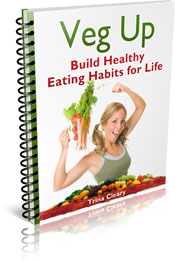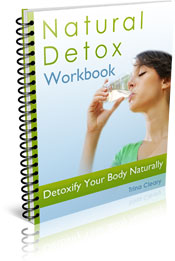|
Raw Food Diet Health RisksHow to Protect Your Raw Food Health
Raw food diet health risks are usually outweighed by the significant health benefits experienced by raw foodists. Learn how to protect yourself against any nutritional deficiencies. Whilst for many people eating a raw food diet promotes above average levels of health and vitality, achieving optimal health requires balancing out the risk factors associated with eating mostly raw foods. Most importantly, some modifications are required to ensure adequate levels of B12, vitamin D, iron, selenium, zinc and protein. Low calorie and water intake can also cause problems for raw foodists, as can a greater exposure to food poisoning and toxic substances. For those of you looking for a quick answer, taking nutritional yeast (check that it’s fortified with B12), B12 supplements, and vitamin D supplements during Winter will cover the most critical nutritional deficiencies. Also check that you’re getting enough calories, complementary proteins and water. There is plenty of anecdotal evidence and blog wisdom circulated about the raw food diet, but only a limited number of serious scientific studies. Tracking down studies that I felt were objective and thorough and using a large enough sample size to be meaningful was quite a challenge! I would have liked to find more than the three I used, so if you know of any other serious scientific studies please let me know. This article is just a summary of what I learnt from the following three studies. If you’re seriously interested in the health and risk aspects of the raw food diet I suggest you read the original studies yourself. I’d put them in order of importance:
The main risks to watch out for are shortages of B12, vitamin D, iron, zinc, selenium and adequate complementary proteins. In terms of eating habits associated with the raw food diet, ensuring that you consume enough calories and continue to drink enough water is also important. There is also some indication that thyroid disorders increase on a raw food diet, but this needs to be substantiated by further specific studies. The possible risks of a raw food diet seem to increase the more vegan the diet is. By eating some animal products such as raw cheeses vegetarians are given greater protection from nutritional deficiencies. B12B12 function impairment is common in vegans and vegetarians as B12 is mostly found in animal products. You can top up your B12 supply by eating B12-enriched foods like fortified cereals, nutritional yeasts, non-dairy milks or meat substitutes. Otherwise you can take a B12 supplement. Aim for 10 micrograms per day. Note that some studies have shown the B12 in supplements is much better absorbed when tablets are chewed rather than swallowed.The stores of B12 kept in the liver can last for several years without needing to be topped up, but B12 deficiency is pretty nasty. Avoid it by making sure you top up your B12 daily. ProteinThe protein argument is often (but not always) a furphy. Western societies tend to be over-consumers of protein and the amount we really need is actually a lot less than we typically eat. However, when your diet is comprised of foods that don’t contain many complete proteins (as are contained in animal products) you need to be careful that you’re balancing your consumption of complementary proteins to get an adequate intake.Another option is to supplement your raw food diet with foods high in complete proteins such as spirulina or nutritional yeast. These have the added benefit of being nutritionally dense in other ways, working to fill the gaps in your diet. It’s worth noting that adults (not children) can adapt to a low protein intake. Our bodies are able to metabolise amino acids and nitrogen more efficiently to maximise the benefit of whatever protein is received. IronThe possible iron shortage in the raw food diet comes down to the different forms of iron, haem and non-haem. Haem iron is more easily absorbed and only found in meat. Non-haem iron, whilst still available to the body, is more difficult to assimilate. As a result, the daily recommended iron intake for vegetarians is already set 1.8 times higher than for those who eat meat.You can offset a low iron intake by ensuring high levels of vitamin C in your diet, as vitamin C helps the body to absorb iron more effectively. Watch out for a shortage of B12 too, as utilisation of iron is impaired when B12 levels are low. Other than that, make sure you’re eating foods high in iron so that you can reach the daily target for adult vegetarians of 14 mg per day (for men and post-menopausal women) and 33 mg daily for women prior to menopause. Vitamin DAlthough Vitamin D levels of study participants weren’t specifically investigated, other dietary studies have found that high fibre diets can increase the loss of Vitamin D from within your body. Therefore, one of the recommendations of the Johnson study was to take a Vitamin D supplement in Winter, particularly if you live in far northern or far southern latitudes. CaloriesMaintaining energy levels requires sufficient calories from our diets. Due to the low calorie nature of many raw foods, insufficient energy intake can become a problem. Take care to consume adequate calories for your body type and activity level. You can up your calorie intake on a raw food diet by consuming more dehydrated foods, seeds and nuts. (Careful not to overdo the nuts or you may boost your percentage of fats too high, even though they’re healthy fats.) Studies of raw foodists have shown that they are more frequently underweight compared to population averages. While we’re only talking slightly underweight, this may not be a completely bad thing. Low calorie diets have been associated with longevity, and there’s merit in not consuming more of the planetary resources than your health requires. However, whilst accepting a diet slightly lower in calories than normal you still need to ensure that your nutritional requirements are being met. Calorie consumption cannot be allowed to drop too low. (Advice cited by the Donaldson study suggests eating no less than 50% of the daily recommended amount of calories – although if you ask me personally I would have thought that was way too low! On average raw foodists eat about 75% of the daily recommended energy requirements.) Although a greater number of raw foodists fall into the underweight category than average, keep in mind that 68.3% (male) and 70.3% (female) fall into the normal weight range compared to 43.7% (male) and 46.5% (female) for the general population. Also, at only 0% (male) and 1.2% (female) there are hardly any obese raw foodists, compared to an average of 10.6% (male) and 11.6% (female) obese people in the general population. (These statistics come from the Kwanbunjan et.al. study which was based in Germany.) There is a correlation between female raw foodists who are underweight with less frequent or non-existent menstruation. Water and HydrationThe Kwanbunjan survey results showed that on average raw foodists drink less than one litre of fluid per day. One reason for this may be that people on a raw food diet feel like they’re hydrated by eating food with high water content.Health authorities typically recommend a fluid intake of between one and two litres daily. People on a raw food diet still need to ensure they’re drinking enough water. Food PoisoningThis warning seems to be based on logic behind rather than any clear evidence that raw foodists suffer from food poisoning more often than average. However, there are some toxic substances and anti-nutrients in raw foods that should be watched out for, for example goitrogen (cabbage, kale and some herbs are lightly goitrogenic, which means they can suppress thyroid function), solanin (green potatoes) and protease inhibitors (soy beans, peanuts).Often warnings about food poisoning refer to animal products, for example toxoplasmosis (raw meats) and salmonella (raw eggs). Raw foodists are usually vegan or vegetarian and therefore unlikely to suffer from these forms of food poisoning. Practical steps for avoiding food poisoning include good food hygiene, washing fruit and vegetables thoroughly and eating food as fresh as possible. Other Honourable Mentions
Sustainability of the Raw Food DietThere has been very little research into the drop-out rates and long term effects of the raw food diet, especially a strictly vegan raw food diet. If you’re a follower of any raw food blogs, you may have noticed that over time many raw food bloggers gradually re-introduce some cooked vegetarian foods into their diets.Although there are many examples of people practising a 100% raw food diet for decades and experiencing optimal health, to me this high raw habit often seems like a more balanced approach. Articles Related to Raw Food Diet Health Risks:
Back to Raw Food Health from Raw Food Diet Health Risks
Back to Growing Raw home from Raw Food Diet Health Risks - How to Protect Your Raw Food Health
|
Are you as healthy as you can be?
Take action to lift your energy and vitality levels beyond recognition.
Focus on
building healthy eating habits for just one month with
Veg Up and you’ll enjoy the effects for years. You will amaze yourself when you see how much more you can achieve.
More Growing Raw
Newsletter
Be sure to subscribe to "More Growing Raw" newsletter to receive monthly healthy eating tips, Growing Raw news and updates.
Most Popular Articles
- Green Smoothie Health
- Raw Food Health Levels
- Growing Vegetables in Containers
- Healthy Eating Plans
- List of Healthy Food to Always Eat Organic
- Growing a Vegetable Garden in a Polytunnel
- All Natural Detox Diet
Does your body need a fresh start?
Brighten up with all natural detox routines that give your body a cleansing push towards healthier patterns.
Learn how to
detoxify your body naturally. Your body is smart enough to clean itself without expensive detox pills and potions.








